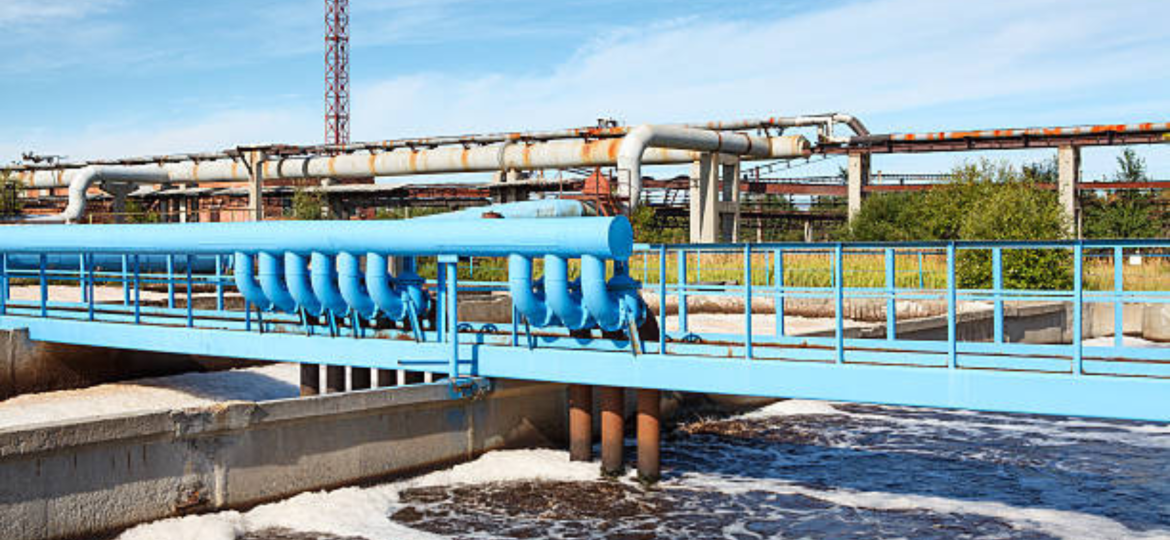
Water is a vital resource, and with increasing urbanization, population growth, and industrial activities, managing water efficiently has become more critical than ever. Wastewater treatment plays a key role in maintaining water quality by treating and reusing water that would otherwise be harmful to the environment and public health. In this blog, we’ll explore wastewater treatment , its importance, the treatment processes involved, and how modern technologies are revolutionizing the sector.
What is Wastewater Treatment?

Wastewater treatment is the process of removing contaminants from sewage or industrial effluents to make the water safe for reuse or discharge into the environment. This process typically involves physical, chemical, and biological methods to treat both domestic and industrial wastewater.
Domestic wastewater (or sewage) includes water from households, kitchens, bathrooms, and laundries. Industrial wastewater, on the other hand, contains pollutants like heavy metals, oils, and chemicals, requiring specialized treatment to ensure it meets environmental safety standards.
Understanding the Benefits of the Waste Treatment Process
The waste treatment process is an essential part of modern environmental management. It involves the removal of harmful substances from wastewater to ensure that water is safe for discharge or reuse. This process provides a wide range of benefits that support environmental sustainability, public health, and economic efficiency. Let’s explore the key advantages:
1. Environmental Protection
- Prevents Water Pollution: Wastewater treatment helps remove toxic chemicals, pathogens, and other contaminants from water before it is released into rivers, lakes, and oceans, thereby preventing pollution that can harm aquatic life.
- Preserves Ecosystems: By cleaning the water, wastewater treatment ensures the preservation of aquatic ecosystems, which support biodiversity and contribute to overall environmental health.
2. Public Health Benefits
- Reduces Disease Risk: Proper wastewater treatment eliminates harmful microorganisms like bacteria, viruses, and parasites that can cause waterborne diseases such as cholera and typhoid.
- Safe Drinking Water: Treating wastewater ensures that water sources remain free from harmful pathogens, contributing to the availability of safe drinking water and improving public health outcomes.
3. Water Conservation and Reuse
- Efficient Water Use: Treated wastewater can be reused for various non-potable purposes, including irrigation, industrial cooling, and landscape watering, reducing the demand for freshwater resources.
- Sustainability: By recycling water through treatment processes, it becomes possible to conserve freshwater resources, which is especially important in areas facing water scarcity.
4. Waste Reduction and Resource Recovery
- Waste-to-Energy: Some treatment facilities convert organic waste into biogas, a renewable energy source that can help power the plant and other local facilities, contributing to sustainability.
- Sludge Management: Treatment processes help minimize the volume of sludge produced, which can then be treated and repurposed, such as for use in agriculture or energy generation.
5. Economic and Industrial Benefits
- Cost Savings: Reusing treated wastewater reduces the need for purchasing freshwater, leading to significant cost savings, particularly for industries that rely on large volumes of water.
- Boosts Agriculture: Treated wastewater can be safely used for irrigation, helping to increase agricultural productivity, particularly in water-limited regions.
6. Improved Local Quality of Life
- Cleaner Surroundings: Wastewater treatment enhances the quality of local waterways and public spaces, making them cleaner and more aesthetically pleasing.
- Healthier Communities: Cleaner water and reduced pollution contribute to healthier living conditions, with lower rates of waterborne diseases and a better quality of life for residents.
Conclusion
The waste treatment process offers essential benefits that protect the environment, improve public health, and promote water conservation. By removing harmful contaminants from wastewater, we ensure a cleaner and more sustainable future. Whether it’s through reducing pollution, recycling water, or boosting agriculture, the benefits of wastewater treatment are wide-reaching and invaluable to communities and industries alike.
Importance of Wastewater Treatment
The importance of wastewater treatment extends beyond the immediate need to dispose of waste safely. Here’s why it’s critical:
-
Environmental Protection: Untreated wastewater contains harmful pollutants like pathogens, heavy metals, and chemicals that can degrade natural ecosystems, contaminate water bodies, and harm wildlife.
-
Public Health: Without proper treatment, wastewater can become a breeding ground for diseases. Proper treatment ensures that harmful bacteria, viruses, and other pathogens are removed.
-
Water Conservation: With water scarcity becoming a global issue, wastewater treatment allows us to recycle and reuse water for purposes like agriculture, industrial processes, and even groundwater recharge.
-
Compliance with Regulations: Governments around the world have strict environmental regulations. Wastewater treatment ensures compliance with these standards, avoiding legal penalties.
Importance of Wastewater Management for Industries: Manufacturing, Agriculture, Textile, and Food Processing
Effective wastewater management is essential for industries like manufacturing, agriculture, textiles, and food processing, ensuring environmental sustainability, regulatory compliance, and cost efficiency. Let’s explore the importance of wastewater treatment in these industries.
1. Manufacturing Industry
Manufacturing generates wastewater containing chemicals and heavy metals. Proper treatment helps:
- Ensure regulatory compliance
- Reduce costs through water reuse
- Protect the environment by preventing pollutants from entering water bodies
2. Agriculture Industry
Agricultural wastewater, often from irrigation and pesticides, needs proper treatment for:
- Water reuse in irrigation
- Nutrient recovery for soil
- Sustainable practices that protect water quality
3. Textile Industry
Textile wastewater contains dyes and chemicals that require effective treatment to:
- Prevent pollution of water bodies
- Improve brand reputation through eco-friendly practices
- Reduce water costs by recycling treated water
4. Food Processing Industry
Wastewater from food processing plants contains organic waste and oils, needing treatment for:
- Organic waste removal
- Energy generation via anaerobic treatment
- Water reuse for non-potable purposes
Conclusion
In conclusion, proper wastewater management helps industries like manufacturing, agriculture, textiles, and food processing minimize their environmental impact, meet regulatory standards, and reduce operational costs. By implementing industrial wastewater treatment solutions, these industries can promote sustainability and protect water resources.
Need for Wastewater Treatment in Sustainable Water Management
Wastewater treatment is a vital component of sustainable water management practices, playing a significant role in preserving natural water resources and protecting public health. As the global demand for water increases and freshwater sources become scarcer, effective wastewater management is crucial for ensuring a sustainable supply of clean water. Here’s why wastewater treatment is essential in the context of sustainable water management:
1. Reduces Pressure on Freshwater Resources
Wastewater treatment helps recycle and reuse water, reducing the dependency on freshwater sources. By treating and reusing wastewater, communities and industries can significantly lower their consumption of freshwater, promoting water conservation and sustainability.
- Water Reuse: Recycled wastewater can be used for non-potable purposes, such as irrigation, industrial processes, and landscaping, thereby conserving freshwater for drinking and other critical needs.
2. Prevents Pollution and Protects Ecosystems
Untreated wastewater contains harmful pollutants such as chemicals, nutrients (nitrogen and phosphorus), pathogens, and organic materials that can negatively impact ecosystems and water quality. Proper wastewater treatment ensures that these contaminants are removed, preventing water pollution and protecting local ecosystems.
- Ecosystem Protection: By preventing the release of harmful substances into rivers, lakes, and oceans, wastewater treatment helps protect biodiversity and the health of aquatic life.
3. Supports Compliance with Environmental Regulations
Many countries have stringent regulations and standards for wastewater treatment to ensure that water bodies remain safe for both humans and wildlife. Efficient treatment systems are required to comply with these regulations and avoid penalties.
- Regulatory Compliance: Municipalities and industries are compelled to treat wastewater to meet environmental standards and safeguard the environment.
4. Mitigates Public Health Risks
Improperly treated wastewater can be a breeding ground for diseases, including cholera, typhoid, and other waterborne illnesses. Wastewater treatment removes harmful pathogens and ensures that water is safe for consumption and use.
- Health Protection: Proper wastewater treatment is a critical measure in preventing disease outbreaks and protecting public health.
5. Promotes Economic Benefits
Wastewater treatment systems not only ensure environmental sustainability but also bring economic benefits by reducing the costs of water consumption and wastewater disposal. In industries such as manufacturing, food processing, and agriculture, treated wastewater can be reused in operations, cutting costs and improving efficiency.
- Cost Savings: Treating and recycling wastewater can significantly reduce water procurement costs and enhance operational efficiency in various industries.
6. Climate Change Mitigation
Wastewater treatment can also contribute to climate change mitigation efforts. Some advanced treatment technologies, such as anaerobic digestion, generate biogas, which can be used as a renewable energy source. This helps reduce the carbon footprint of wastewater treatment plants.
- Energy Generation: Wastewater treatment can provide energy recovery through biogas production, supporting sustainable energy practices.
The need for wastewater treatment in sustainable water management is more pressing than ever. By reducing freshwater consumption, preventing pollution, supporting regulatory compliance, and promoting public health, wastewater treatment plays an integral role in ensuring that we use our water resources responsibly. As we face increasing environmental and water-related challenges, the importance of effective wastewater treatment solutions cannot be overstated.
Key Takeaways:
- Water Conservation: Treating wastewater reduces reliance on freshwater.
- Environmental Protection: Proper treatment prevents contamination of water ecosystems.
- Public Health: Effective wastewater treatment reduces the risk of waterborne diseases.
- Economic Efficiency: Wastewater treatment helps save costs and promotes sustainable business practices.
Incorporating wastewater treatment into sustainable water management strategies is critical for maintaining the health of both our environment and our communities for future generations.
Key Stages of Wastewater Treatment
The wastewater treatment process can be broken down into several key stages, each serving a specific function:
Preliminary Treatment: This initial phase involves removing large debris like plastics, rags, and grit using screens and grit chambers. It protects the equipment in subsequent treatment stages from damage.
Primary Treatment: During primary treatment, suspended solids and organic matter are separated through sedimentation. The solids settle at the bottom, forming sludge, while the remaining water moves on for further treatment.
Secondary Treatment: In this biological phase, microorganisms break down organic matter in the wastewater. Technologies such as activated sludge processes or biofilm reactors are used to degrade the pollutants.
Tertiary Treatment: This stage involves the removal of remaining contaminants, such as nutrients like nitrogen and phosphorus, through filtration or chemical processes. Tertiary treatment is often used when the treated water will be reused for irrigation or other purposes.
Disinfection: The final step before discharging the treated water involves disinfection, typically using chlorine, UV light, or ozone, to kill any remaining pathogens.
Types of Wastewater Treatment Systems
There are various types of wastewater treatment systems used globally, each suited for different applications:
Activated Sludge Systems: This method uses aeration to encourage bacterial growth, which breaks down organic matter in wastewater.
Sequencing Batch Reactors (SBRs): These systems treat wastewater in batches rather than continuously. They are ideal for industries or smaller communities.
Membrane Bioreactors (MBRs): Combining biological treatment with membrane filtration, MBR systems provide high-quality treatment and are effective in removing microorganisms and suspended solids.
Moving Bed Biofilm Reactors (MBBRs): This technology uses biofilms attached to moving media to break down organic pollutants, offering a compact and efficient treatment method.
Innovations in Wastewater Treatment
Advancements in wastewater treatment technology are helping to address the evolving challenges of water management. Here are some modern innovations reshaping the industry:
Smart Wastewater Systems: Internet of Things (IoT) technology is being used to monitor water quality in real-time, optimize treatment processes, and predict system failures, improving overall efficiency.
Energy Recovery: Many modern wastewater treatment plants are being designed to recover energy from the treatment process. Anaerobic digestion of sludge produces biogas, which can be used to generate electricity.
Decentralized Treatment Systems: These systems allow for wastewater to be treated locally, closer to the source of generation, making them ideal for remote areas or small communities.
Advanced Filtration and Disinfection: Nanotechnology and advanced filtration methods, such as reverse osmosis and UV disinfection, are making wastewater treatment more effective and energy-efficient.
Why Choosing the Right Treatment System is Essential
Every wastewater treatment project is unique, with varying needs depending on factors such as water quality, scale, and environmental regulations. Choosing the right system is crucial to ensuring that water is treated efficiently and meets all safety standards.
At SUSBIO, we specialize in delivering innovative wastewater treatment systems that are both sustainable and cost-effective. Our SUSBIO ECOTREAT solution is a state-of-the-art packaged/prefabricated sewage treatment plant designed to meet the needs of residential, commercial, and industrial clients. With a focus on energy efficiency, easy installation, and minimal maintenance, SUSBIO ECOTREAT offers the perfect balance of performance and reliability.
Conclusion
Wastewater treatment is vital for protecting the environment, ensuring public health, and promoting sustainable water management. With modern technologies transforming the industry, we can now treat water more efficiently and sustainably than ever before. As water scarcity and environmental concerns continue to grow, investing in effective wastewater treatment solutions is essential for a cleaner, healthier future.
For all your wastewater treatment needs, choose SUSBIO – the leading wastewater treatment company in India. Our innovative SUSBIO ECOTREAT system ensures top-quality treatment while minimizing environmental impact, making it the best choice for any project.


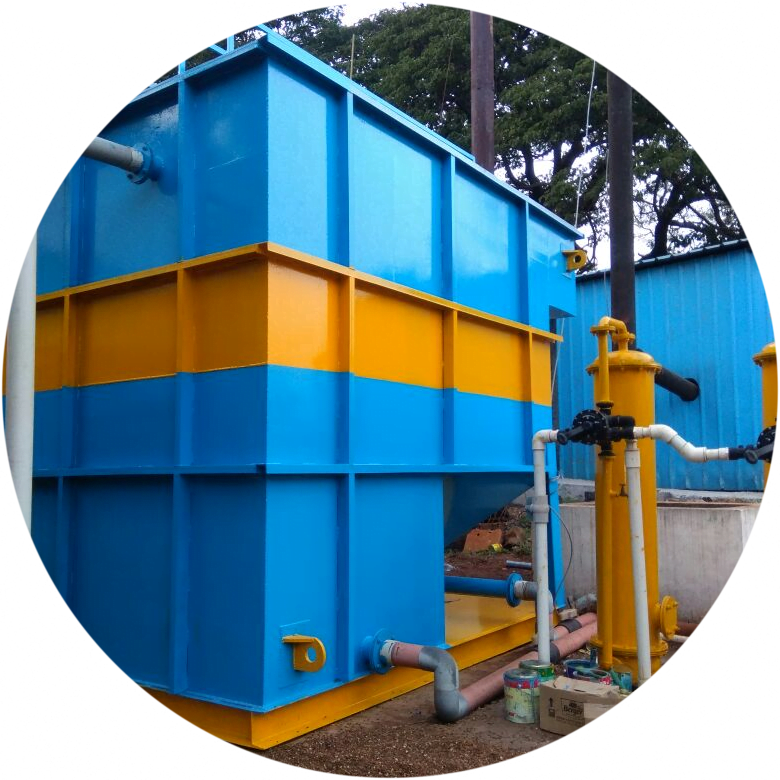


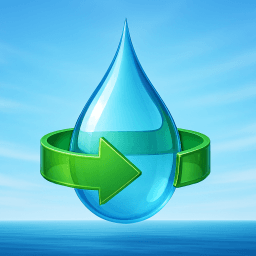
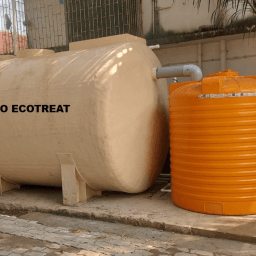


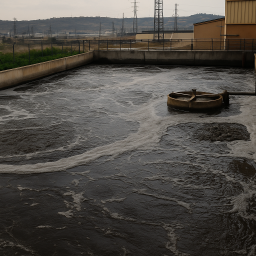
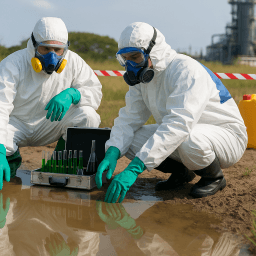
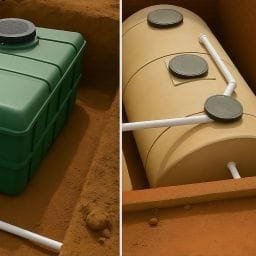

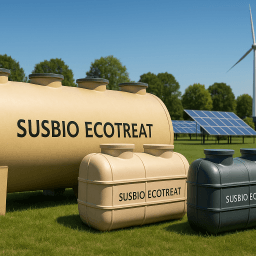


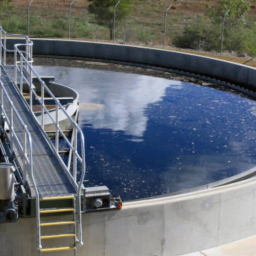

[…] 0 By Akshat Tyagi Latest Blogs October 14, […]
[…] SUSBIO, we specialize in providing innovative biological wastewater treatment solutions tailored to your specific needs. Our SUSBIO ECOTREAT system utilizes cutting-edge […]
[…] evolution of wastewater treatment is gaining momentum as we confront the challenges of environmental conservation, space […]
[…] sustainability becomes a global priority, the demand for reliable and eco-friendly wastewater treatment solutions is more crucial than ever. Wastewater treatment plays a pivotal role in […]
[…] sources, harm aquatic ecosystems, and lead to the spread of waterborne diseases. Effective wastewater treatment ensures that harmful substances are removed, safeguarding public health and preserving the natural […]
[…] the rapidly evolving field of wastewater treatment, finding the most efficient and reliable solution is crucial for both residential and industrial […]
[…] septic tanks and soak pits have been the go-to solutions for decades. However, advancements in wastewater treatment technologies have brought innovative solutions like packaged sewage treatment plants (STPs) into […]
[…] sewage treatment plant (PSTP) is a compact, pre-assembled wastewater treatment system that treats sewage and wastewater from residential, commercial, and industrial sources. […]
[…] these issues requires robust wastewater treatment processes to ensure that water is clean and safe for the environment and human […]
[…] faces increasing pressure to manage its water resources efficiently, and wastewater treatment plays a pivotal role in addressing this challenge. As industries, municipalities, and […]
[…] today’s rapidly urbanizing world, effective wastewater treatment is essential for environmental sustainability and public health. As industries and communities […]
[…] these risks, proper wastewater treatment is crucial for hospitals to ensure compliance with environmental regulations, maintain public […]
[…] treatment plants (STPs) emerge as a revolutionary solution, offering efficient and sustainable wastewater treatment with a focus on water […]
[…] Wastewater treatment is essential for sustainable living, particularly in residential buildings and apartments. With increasing urbanization and stricter environmental regulations, managing wastewater effectively has become a necessity. A Wastewater Treatment Plant (WWTP) not only ensures the responsible disposal of sewage but also enables the recycling of water for various uses such as gardening, flushing, and cleaning. In this blog, we will explore why residential buildings and apartments need wastewater treatment plants, introduce the innovative SUSBIO ECOTREAT, answer frequently asked questions, and provide a detailed conclusion to help you make an informed decision. […]
[…] sewage and industrial wastewater discharge. Rapid urbanization, population growth, and inadequate wastewater treatment infrastructure have resulted in severe pollution of rivers like the Ganga, Yamuna, and Godavari. […]
[…] large-scale municipal treatment plants, these smaller units are specifically tailored to meet the wastewater treatment needs of small to medium-sized industries, ensuring compliance with environmental regulations and […]
[…] Proper wastewater treatment minimizes pollution, protects water bodies, and supports sustainable industrial practices. […]
[…] Effective wastewater treatment is crucial for maintaining environmental sustainability and regulatory compliance. A Sewage Treatment Plant (STP plant) plays a vital role treating sewage and making the water safe for discharge or reuse. Among various STP technologies, the Packaged FRP STP (Fiber-Reinforced Plastic STP) is gaining popularity due to its efficiency, durability, and cost-effectiveness. In this blog, we explore why a packaged FRP STP is the best choice for wastewater treatment. […]
[…] where SUSBIO ECOTREAT steps in—a smart, sustainable, and efficient wastewater treatment solution that is redefining the future of wastewater […]
[…] and industrial projects. These compact, efficient, and cost-effective solutions ensure proper wastewater treatment while conserving valuable […]
[…] TreatmentPrimary wastewater treatment involves removing larger solids, oils, and greases from the wastewater. This stage includes […]
[…] Treatment – Primary wastewater treatment involves the wastewater entering a settling tank where solid waste settles at the bottom, and […]
[…] Wastewater treatment plays a pivotal role in safeguarding public health, protecting ecosystems, and promoting sustainable water management. With rising urbanization and industrial activities, the need for efficient and eco-friendly wastewater treatment solutions has become more urgent than ever. This blog delves into the definition of wastewater, its types, the importance of treatment, modern technologies, packaged systems, and why SUSBIO ECOTREAT is a revolutionary alternative to traditional sewage treatment plants. […]
[…] their benefits and applications, with a focus on high-demand keywords like sewage treatment plant, wastewater treatment, and effluent treatment […]
[…] Water (Prevention and Control of Pollution) Act, 1974: Mandates the prevention of water pollution through effective wastewater treatment. […]
[…] Wastewater treatment is undergoing a transformative shift with the integration of advanced technologies designed to deliver high efficiency, cost-effectiveness, and environmental sustainability. Among the most notable innovations in this space is the Packaged MBBR Technology (Moving Bed Biofilm Reactor). Compact, modular, and highly effective, Packaged MBBR systems are redefining how communities, industries, and institutions manage their sewage and wastewater. In this blog, we delve deep into how this technology is revolutionizing the wastewater treatment landscape, with a special focus on the cutting-edge SUSBIO ECOTREAT system. […]
[…] protecting ecosystems, and supporting communities. Let’s explore how cutting-edge wastewater treatment is turning waste into worth and shaping a cleaner […]
[…] you’re searching for the best solution for wastewater treatment, want to upgrade your existing STP, or simply wish to understand the latest in sewage treatment […]
[…] compact sewage treatment plant (STP) is a modern solution designed for efficient wastewater treatment in areas where space, time, and resources are limited. With urbanization, rising populations, and […]